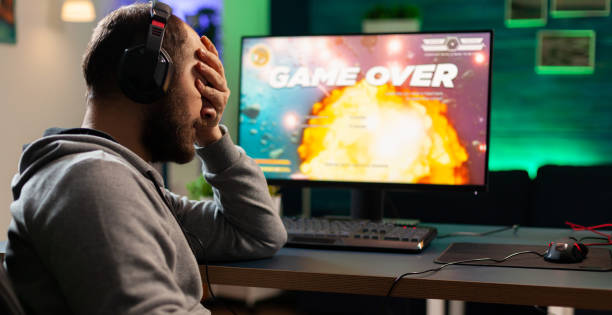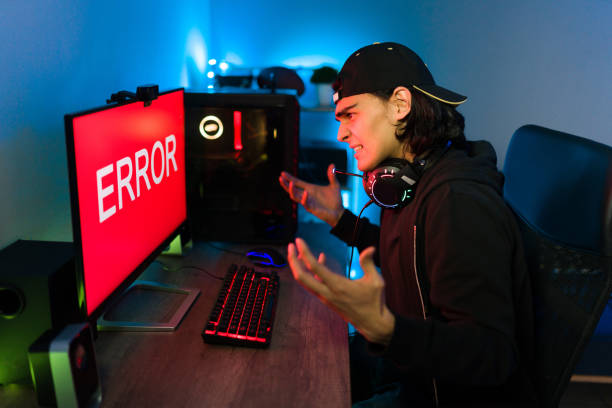Introduction
Do you know what Lag is? Well, lag is like that unwanted guest who shows up uninvited and ruins your party. In the world of online gaming, lag can be a major buzzkill. Imagine that you’re in the middle of an epic battle, your heart’s racing, and just as you’re about to land the winning blow, your game stutters. Your character freezes, and the next thing you know, you’re staring at the game over screen. Frustrating, right? Whether you’re a casual gamer or a hardcore enthusiast, dealing with lag can be a real pain. But don’t worry, you don’t have to suffer through it. There are plenty of ways to reduce lag and make your gaming experience smoother and more enjoyable.
And, in this guide, we will talk about how to reduce lag for online gaming and give you practical tips to minimize it. So, let’s dive in and help you get back to gaming without the annoying interruptions!
Understanding Lag
Lag is that annoying delay between your action in a game and the game’s response. You press a button to jump, but your character stands still for a second before reacting. This delay can turn an exciting game into a frustrating experience. But what exactly causes lag?
Lag can come from several sources:
Network Issues: Your internet connection is a big player here. Slow or unstable internet can cause your game to lag, as it takes longer for data to travel between your device and the game server.
Hardware Problems: If your computer or console isn’t powerful enough, it might struggle to keep up with the game. This includes your graphics card, RAM, and storage drives.
Software Glitches: Sometimes, the software on your device can cause lag. This includes outdated drivers, too many background applications running, or even the game itself if it is not optimized well.
How to Reduce Lag for Online Gaming
If you are a pro gamer, you definitely know that lag can seriously ruin your gaming fun, but don’t worry, there are plenty of ways to reduce it. Here are some simple steps you can take to enjoy a smoother gaming experience:
1. Check Your Internet Speed
First, make sure your internet speed is up to par. Use a tool like Speedtest.net to check your download and upload speeds. For most online games, you need at least 15-20 Mbps download and 3 Mbps upload.
2. Use a Wired Connection
A wired Ethernet connection is usually more stable and faster than Wi-Fi. If possible for you, connect your gaming device directly to your router with an Ethernet cable to minimize lag.
3. Optimize Your Network
- Place Your Router in a Central Location: This helps ensure a strong and stable Wi-Fi signal if you’re using wireless.
- Limit Bandwidth Usage: Avoid streaming videos or downloading large files while gaming. This frees up bandwidth for your game.
4. Upgrade Your Router
If your router is old, it might be time for an upgrade. So, look for a router that supports the latest standards and has good range and speed.
5. Update Your Hardware
- Graphics Card: A powerful graphics card can handle game graphics better, reducing lag.
- RAM: More RAM helps your device run multiple processes smoothly. Aim for at least 8GB, but 16GB is better for gaming.
- Storage: Use an SSD instead of an HDD. SSDs load games faster and can reduce lag.
6. Keep Your Software Updated
- Drivers: Regularly update your graphics card drivers and other important system drivers.
- Game Settings: Lower your game’s graphics settings if your device is struggling to keep up.
- Background Applications: Close unnecessary apps running in the background to free up system resources.
7. Use Game Boosters
Game booster software can optimize your device for gaming by closing background processes and prioritizing game performance.
8. Choose the Right Game Servers
When playing online, select servers that are geographically closer to you. This can reduce ping and latency, making your game run smoother.
9. Monitor and Test Your Connection
Moreover, use tools to check your ping and latency regularly. This helps you identify and fix issues before they affect your gaming experience.
| Call 866-861-4084 for Internet Deals |
Reducing Lag on Different Gaming Platforms
Lag can strike on any gaming platform, but there are specific tips for each one to help you minimize it. Here’s how to reduce lag whether you’re gaming on a PC, console, or mobile device.
PC Gaming
- Use a Wired Connection: Connect your PC directly to the router with an Ethernet cable for a more stable and faster internet connection.
- Upgrade Your Hardware: Make sure that your PC meets the recommended specifications for the games you play. This might mean upgrading your graphics card, adding more RAM, or switching to an SSD.
- Update Drivers and Software: Regularly update your graphics card drivers and other critical system software to keep everything running smoothly.
Console Gaming
- Keep Your Console Updated: Make sure your console’s firmware and game software are always up to date. Updates often include performance improvements.
- Use a Wired Connection: Like with PC gaming, a wired Ethernet connection can provide a more stable and faster connection than Wi-Fi.
- Optimize Your Network:
- Try to place your router in a central location if you are using Wi-Fi.
- Limit the number of devices using the internet while you are gaming.
- Keep Your Console Cool: Furthermore, overheating can cause lag. Ensure your console is well-ventilated and free from dust.
Mobile Gaming
- Close Background Apps: Close any unnecessary apps running in the background to free up resources for your game.
- Use Wi-Fi Instead of Mobile Data: Wi-Fi is generally faster and more stable than mobile data. Connect to a reliable Wi-Fi network for a better gaming experience.
- Update Your Device and Apps: Keep your operating system and games updated to benefit from performance improvements and bug fixes.
- Optimize Game Settings: Lower the graphics settings in your games if your device struggles to run them smoothly.
Tools to Test Ping and Latency
Testing your ping and latency is very important in understanding and reducing lag in online gaming. Below are some easy-to-use tools that can help you monitor these crucial aspects of your internet connection:
1. Speedtest.net
Speedtest.net is a popular tool that measures your internet speed, including ping. It is user-friendly and provides quick results.
How to Use: Visit Speedtest.net and click the “Go” button. The tool will measure your download and upload speeds along with your ping.
2. PingPlotter
PingPlotter is a more advanced tool that not only measures your ping but also helps diagnose network issues by showing where the delays occur.
How to Use: Simply download and install PingPlotter. Then enter the address of the game server you want to test and start the test. The tool will show you detailed information about your connection.
3. GameBench
GameBench is designed specifically for gamers. It provides insights into your game’s performance, including ping, frame rate, and battery usage (for mobile games).
How to Use: Download GameBench on your PC or mobile device, start the app, and play your game. GameBench will record and display performance metrics.
4. In-Game Tools
Many online games have built-in tools to display your ping and latency. These tools are often found in the settings or options menu of the game.
How to Use: Check your game’s settings or options menu for a “Network” or “Performance” section. Enable the display of network statistics to see your ping and latency while playing.
Conclusion
FAQs
What is the Best Internet Speed for Gaming?
A download speed of at least 15-20 Mbps and an upload speed of 3 Mbps is recommended for most online games.
Can VPNs Reduce Lag?
Sometimes. A good VPN can reduce lag by providing a more direct route to the game server, but this isn’t guaranteed and depends on the VPN’s quality and server locations.
How Often Should I Upgrade My Gaming Hardware?
Every 3-5 years, depending on how fast technology advances and your gaming needs. Regularly upgrading components like the GPU and adding more RAM can help maintain performance.
Are Wired Connections Always Better for Gaming?
Generally, yes. Wired connections offer more stable and faster internet compared to wireless connections, reducing the chances of lag.
How Do Game Boosters Work?
Game boosters optimize your system for gaming by freeing up resources, closing unnecessary background processes, and prioritizing game-related processes.

Meet Jennifer Harper, a wordsmith extraordinaire who has been shaping the digital landscape with her creative prowess for the past two years. Not just a content writer; she is a storyteller who brings the content to life. Her passion for internet trends, memes, and the ever-evolving world of entertainment is evident in every piece she creates. Jennifer doesn’t just follow trends; she sets them.

